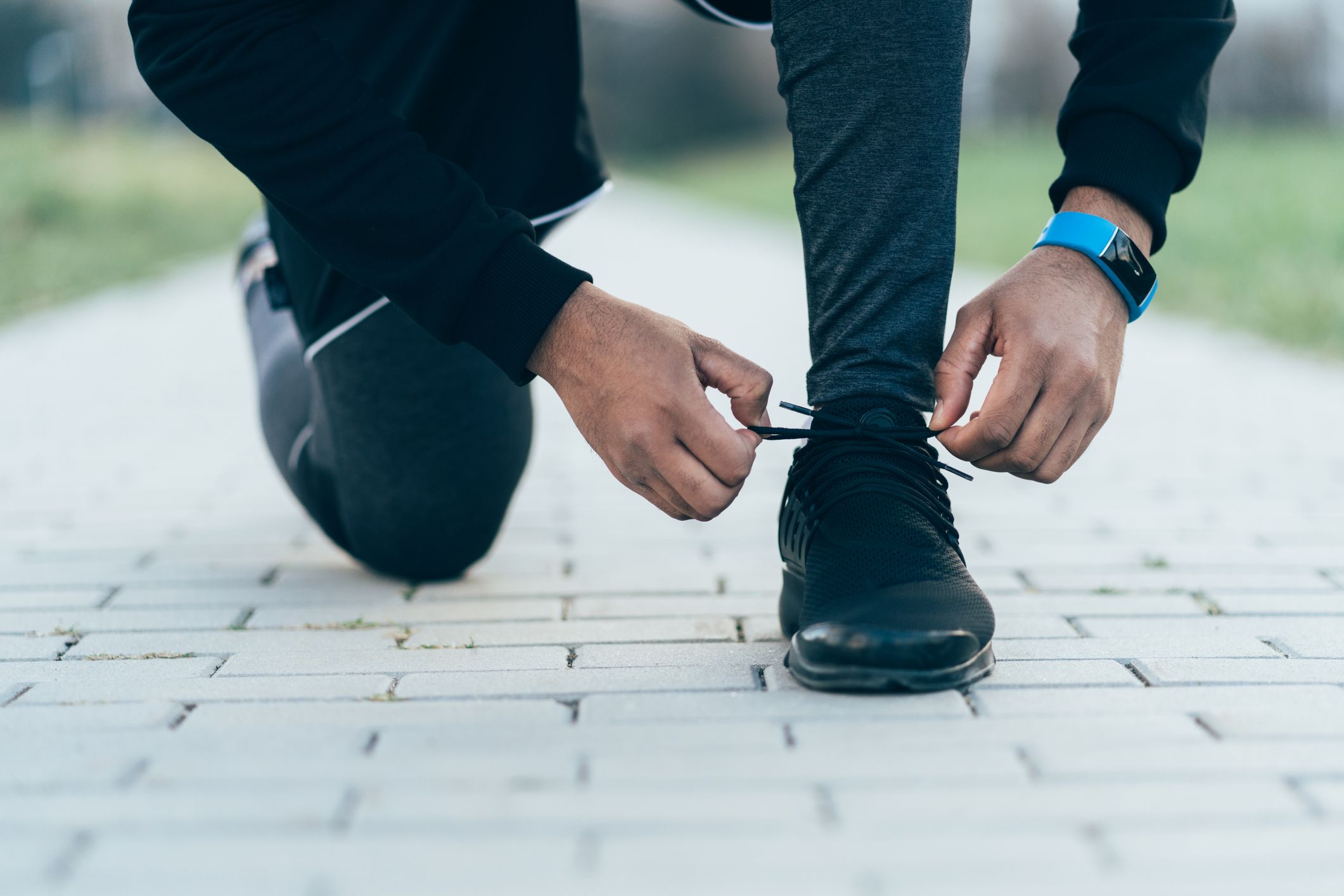
Wait, weren’t you four pounds lighter yesterday? Yeah, us too. While you might jump to blame that burrito bowl you had for lunch, you can actually chalk up that random weight fluctuation to your body just handling its own business as usual. There are actually several simple reasons behind why your weight fluctuates so much.
“It’s very normal for your weight to go up and down,” says Michelle May, MD, founder of the Am I Hungry? Mindful Eating Program. “As long as we’re alive, our cells, tissues, and organs are constantly exchanging substances with the environment, which causes those fluctuations.”
On average, most women can expect to fluctuate up to five pounds in a single day, according to registered dietitian Amy Shapiro, who says you shouldn’t really worry unless it’s more than that. “Most of the time, weight fluctuations are due to water retention in the body,” she adds.
Wait, so I’m not gaining weight?
Nope. That jump in weight is the result of “changes in your body’s waste system (ahem, pee and poop) and shifting fluids in your kidneys and bladder,” says Dr. May. Below are some major causes of unexpected weight fluctuations.
You’re eating foods that are way too high in sodium.
After you nosh on salty foods, your body retains more water to maintain a specific concentration of salt in the bloodstream. That extra water dilutes the salt until it flushes out and causes a temporary increase in body weight, says Dr. May.
You’re eating foods with a lot of water in them.
And get this: Eating healthy foods that contain lots of H2O, like fruits and veggies, soups, and smoothies, could also cause a temporary uptick on the scale, says Dr. May. (You know, because: water.) But once your body processes the additional water, your weight will return to normal, so don’t stress out.
You’re on your period.
The other major thing to consider before freaking out over a bloated number on the scale is the time of month. “The changes in progesterone and other hormones that happen in your body during your menstrual cycle cause shifts in your weight,” says Dr. May.
Basically, hormone fluctuations throughout the month can lead to weight change, elaborates Shapiro. “Estrogen can cause water retention, and progesterone is a natural diuretic, so depending where you are in your cycle you may see this reflected in your weight status.”That’s why you may feel bloated a week before your period plus a couple of days after it starts. Things like constipation or diarrhea (which can often come with your period) can contribute to feeling puffy, too.
You’ve over-exercised.
No, this isn’t an excuse to quit the gym: Sometimes, a change in workout routine or a harder workout can cause temporary weight gain due to tissue damage and inflammation. When you work out, you cause microtears in your muscles—which is actually a good thing, because the repair process is what makes your muscles stronger.


But, in the meantime, inflammation can occur—which according to Shapiro, causes weight gain due to the buildup of tissue and fluid in the body as your muscles try to repair themselves.
This should sort itself out as your body gets used to the new exercise. However, make sure you’re also allowing yourself rest and recovery days. Gassing yourself during every workout is counterproductive.
You’re dehydrated.
Ironically, the less water you drink, the more you might weigh, according to Shapiro. “Dehydration can lead to water retention, as your body will try to hold on to as much water as possible when it doesn’t have enough,” she explains. Since your body wants to maintain homeostasis (i.e., the equilibrium or balance in the body of water and salt), losing too much water makes it hold onto more, thereby causing weight gain. But don’t worry—drinking more water should fix that right up.
You overdid it on the booze.
Alcohol is a dehydrating agent—aka, it makes you lose water and affects homeostasis. As we just mentioned, dehydration can cause water retention, so too much booze may make you temporarily gain weight. (At least that explains the puffy feeling you get after a night out.)
You had more carbs than normal.
Carbs actually store water in your body—but only temporarily, so don’t decide to go keto just yet! “This is because we store each molecule of glycogen (the end product of carb digestion) in our muscles with water,” says Shapiro. When your body stores glycogen, it does so by binding it to water molecules at a ratio of one gram of glycogen to three to four grams of water, as confirmed by a 2015 study in the European Journal of Applied Physiology. This occurs when the glycogen isn’t being used as energy, but as you use it up, that glycogen breaks down into glucose for a quick burst of energy, taking the water along with it.
What is my actual weight? Is there such a thing?
Well, kind of—there is a range that your body falls into naturally, which is your “true” weight. “First, be consistent with the time of day you weigh yourself,” says Shapiro. “I recommend people weigh themselves first thing in the morning after using the bathroom, and they should weigh themselves without any clothing on. You should use that weight to base your ‘true’ weight. Shapiro also recommends weighing yourself only once a week—ideally the same day each week.
Jumping on the scale more often than that will only frustrate you because there’s so much that can cause a fluctuation. You can also rely on other methods, like using measurements or just keeping an eye on how your clothes fit if you’re not a fan of the scale.
That said, Shapiro wants you to keep an eye on how much weight you’re gaining on a daily basis. “If you see an increase or decrease of more than six pounds or so, you may want to call your healthcare provider as this may be a sign of illness,” she said. “Diseases such as diabetes can often lead to weight loss, while low thyroid or hormonal issues like PCOS can cause weight gain.”If you notice a change in weight that’s more than 10 pounds, along with shortness of breath or swelling in the legs and ankles, it could indicate more serious conditions like kidney disease.
Schedule a visit to see the doc ASAP if this sounds like you. Otherwise, don’t be so damn hard on yourself.
Source: Read Full Article
